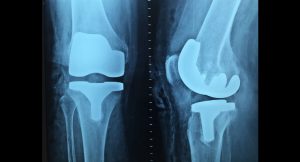The pursuit of new technologies in healthcare designed for remote patient care has heated up in the COVID-19 era. Smart implant technology predated the pandemic, but the concept of tracking and treating illness distantly has taken on a new importance. Nevertheless, progress in smart orthopedic implants is set to allow groundbreakingly-convenient access between patients and healthcare professionals.
After founding Angiotech Pharmaceuticals and serving as its Chief Executive Officer for about a decade, Dr. Bill Hunter saw a unique opportunity present itself in the field of medical technology. Some cardiovascular stents had the dangerous side effect of inflammation, and pharmaceuticals had the right medication to subdue this problem. Hunter organized a meeting of the minds to develop drug-eluting stents and noticed a chance for further innovation.
Hunter posited that all of the micro-electromechanical systems present in the modern pacemaker opened the door to sensor technology being suitable for most implanted medical devices. “You got to have consumer electronics to get it there. You got to do cloud storage and data analytics and user interfaces on the other end. None of the components is rocket science, but putting them all together is actually a bit bigger task than meets the eye. And so it’s pretty exciting,” said Dr. Hunter. To that end, he conceived of Canary Medical and put together a team with cardiac backgrounds in 2012, with the “canary” drawing a direct connection between this pioneering technology and the small, yellow songbird traditionally sent ahead of humans into coal mines.
Now the Canary Health Implantable Reporting Processor, known as CHIRP, has arrived. Researchers at Zimmer Biomet immediately noticed that the size, equivalent to a single triple-A battery, and flexibility made the CHIRP a great candidate for sensor technology in knee implants. Embedded in the tibial extension segment of the prosthesis, the sensor power source and transmitter exist on a 1x1.5 millimeter chip.
The diminutive CHIRP has accelerometers, a pedometer, gyroscopes, and more to paint a full picture of the health of its wearer. This information is uploaded to a medical information cloud powered by Microsoft Azure for implant performance tracking and general diagnostic purposes. Not only is a tracked implant convenient for healthcare workers, it may preclude regular visits to a medical office for patients with physical limitations or COVID-19 concerns. CHIRP’s battery could enable an implant to broadcast data for up to 20 years.
The sky’s the limit on finding ways to use the processor as a diagnostic tool. Smart-tech screws in implants could help run tests on bones, organs, and even the heart if specifically designed for it. “We’re going to start to be able to get into smaller and smaller and more intricate devices as we go forward,” Dr. Hunter said. Zimmer Biomet will introduce CHIRP sensors in the Persona-IQ, the newest model of its personalized Persona Revision knee implants. Both Zimmer Biomet and Canary Health are working on a reimbursement deal to incentivize physicians to monitor CHIRP data.























